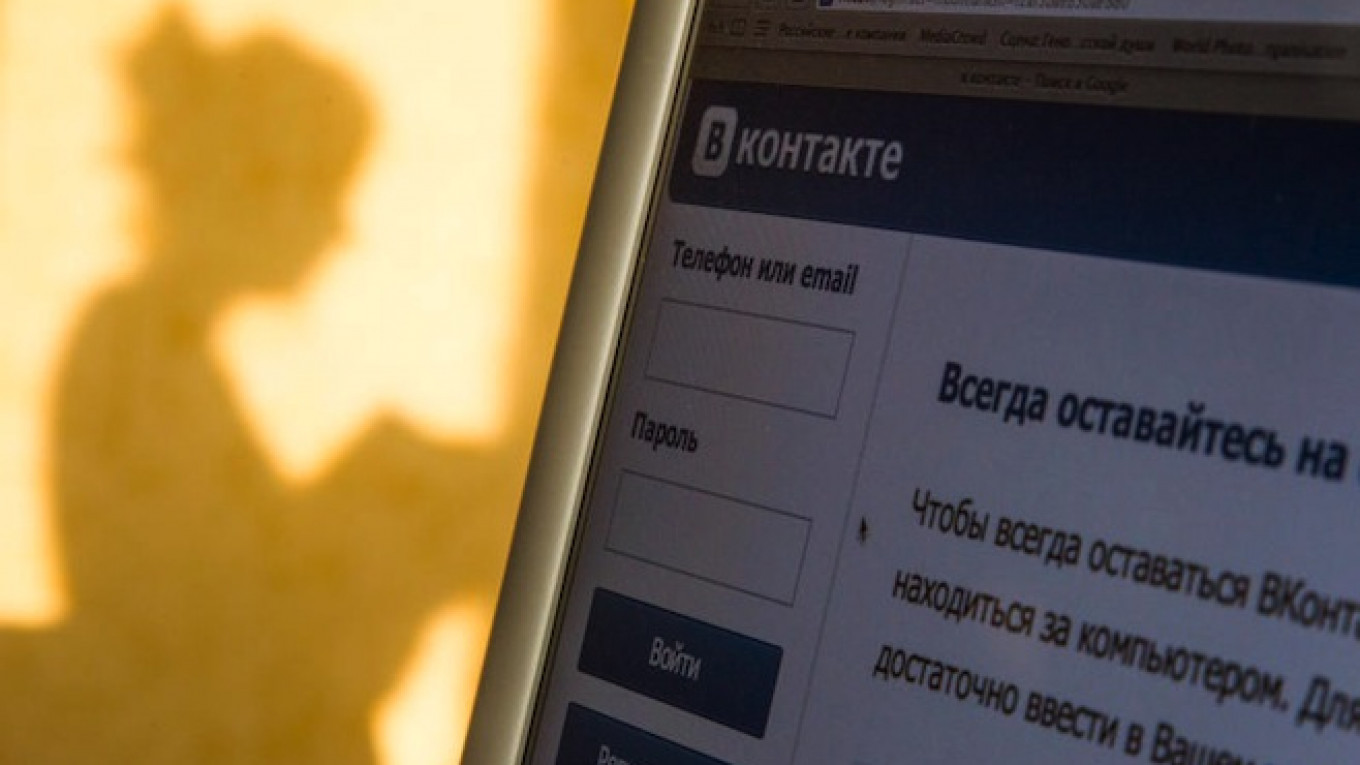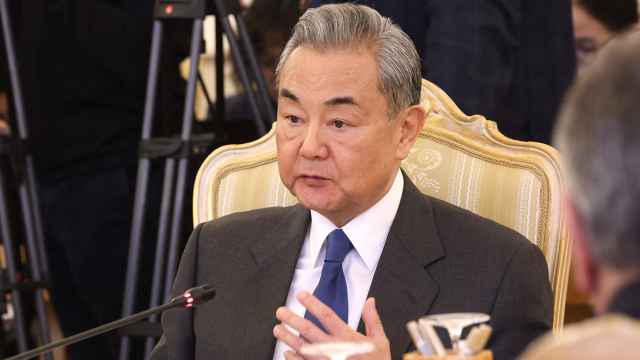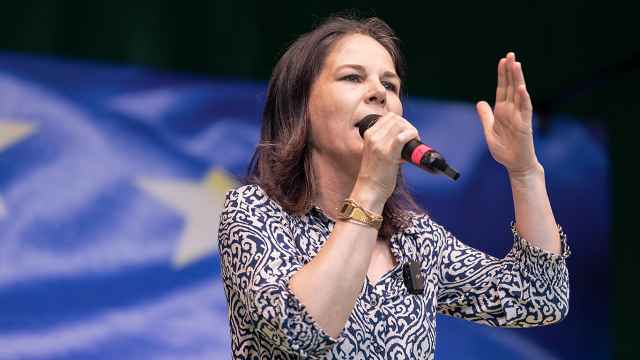Russia’s leading social network VK has beaten the country’s biggest television channel in the battle for viewers’ attention, data from media research firm TNS Russia showed.
VK, previously known as VKontakte, had 13.2 million daily users in March this year, while state-owned giant Channel One had an audience of only 10.9 million, according to TNS Russia.
Their weekly audiences were roughly on par, with VK leading by about 10,000 weekly users.
VK remains by far the most popular social network in Russia, with more than eight times the daily users of leading international social network Facebook, the data showed.
The comparison between television channels and social networks is approximate, as statistics for the two platforms cannot be calculated in the same way, a TNS Russia spokeswoman told The Moscow Times. The daily audience of social networks was estimated according to the number of people who viewed any part of the website at least once a day. The daily reach of television channels, on the other hand, is the number of people who watched at least 1 minute of a channel’s broadcasts daily.
Internet companies have gained quickly on traditional media in Russia in recent years, receiving an extra boost from an acceleration in advertising revenues that has continued this year despite the economic crisis.
The only segment of the advertising market that grew in the first quarter of this year was contextual advertising, or targeted online ads, which grew 16 percent to a total of about 15 billion rubles ($300 million), according to the Association of Communication Agencies of Russia (AKAR).
This growth indicates that companies are reorienting toward the Internet as advertising budgets shrink. Television advertising fell 22 percent to about 30 billion rubles ($600 million) in the same period, while the market as a whole shrank 17 percent to about 64 billion rubles ($1.3 billion), AKAR found.
TNS Russia’s Web Index and TV Index were calculated in March this year based on viewers between the ages of 12 and 44 living in cities of 100,000 or more residents.
Contact the author at d.damora@imedia.ru
A Message from The Moscow Times:
Dear readers,
We are facing unprecedented challenges. Russia's Prosecutor General's Office has designated The Moscow Times as an "undesirable" organization, criminalizing our work and putting our staff at risk of prosecution. This follows our earlier unjust labeling as a "foreign agent."
These actions are direct attempts to silence independent journalism in Russia. The authorities claim our work "discredits the decisions of the Russian leadership." We see things differently: we strive to provide accurate, unbiased reporting on Russia.
We, the journalists of The Moscow Times, refuse to be silenced. But to continue our work, we need your help.
Your support, no matter how small, makes a world of difference. If you can, please support us monthly starting from just $2. It's quick to set up, and every contribution makes a significant impact.
By supporting The Moscow Times, you're defending open, independent journalism in the face of repression. Thank you for standing with us.
Remind me later.






